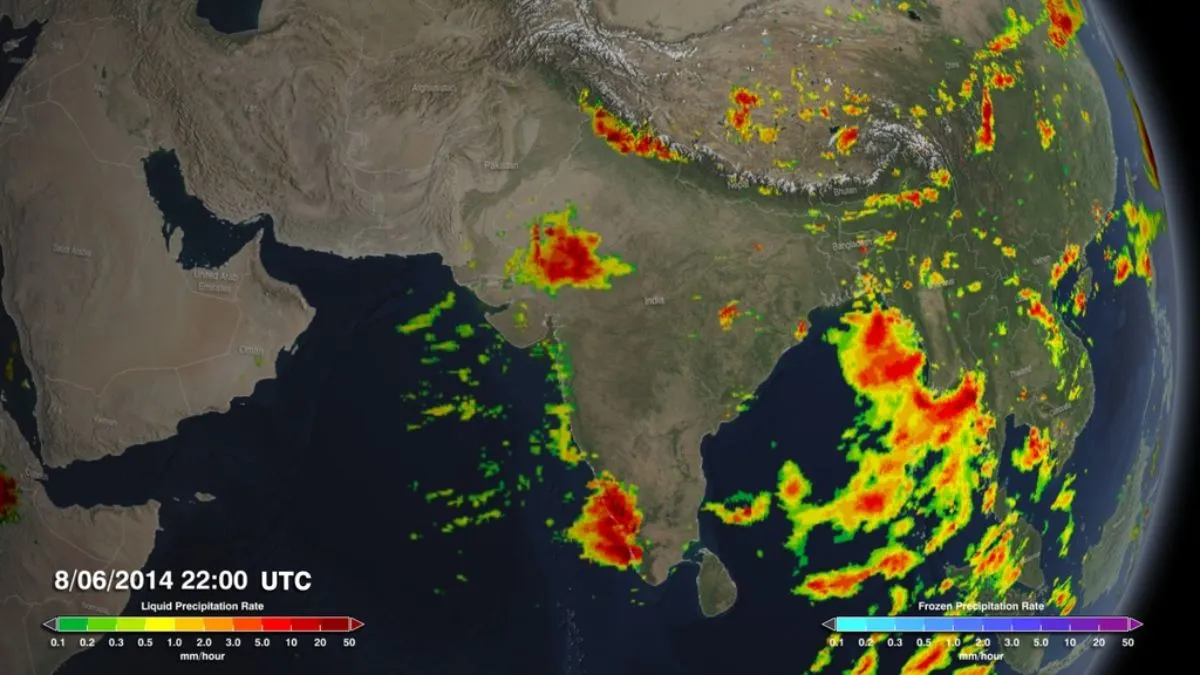- By Alex David
- Mon, 26 May 2025 03:18 PM (IST)
- Source:JND
In an unprecedented advancement in developing weather forecasting technologies in India, the Government of India introduced the Bharat Forecasting System (BFS) on May 26, 2025. BFS is the Brainchild of the Indian Institute of Tropical Meteorology (IITM) Pune University, and with the reinforcement of the supercomputer Arka, BFS offers hyperlocal weather predictions.
What is BFS?
On May 26, 2025, the union government under the minister of earth sciences, Jitendra Singh, announced the launching of BFS. BFS increases weather prediction capabilities for complex phenomena related to risks of disasters, agriculture, hydrology, and even public safety, which helps in better planning and optimisation of resources.
Key Features of the Bharat Forecasting System
Ultra-High Grid Resolution:
- 6 km x 6 km, improving from the previous 12 km resolution
- Enables precise district- and panchayat-level forecasts
Supercomputing Power: Arka
- Speed: 11.77 petaflops
- Storage: 33 petabytes
- Processing Time: Reduces forecast generation time from 10 hours (Pratyush system) to just 4 hours
Nowcasting Capability:
- Offers real-time forecasts up to 2 hours ahead
- Integrates data from 40 Doppler Weather Radars, with plans to scale up to 100
Global Benchmarking
Model | Forecast Resolution |
India (BFS) | 6 km (highest globally) |
European ECMWF | 9–14 km |
U.S. GFS | 9–14 km |
UK Met Office | 9–14 km |
India now leads the world in high-resolution weather forecasting, especially for tropical regions.
Coverage and Reach
- Effective across tropical zones (30°N to 30°S)
- Covers the entire Indian mainland (8.4°N to 37.6°N)
Development and Backing
Developed by IITM Pune scientists, including Parthasarathy Mukhopadhyay
Supported by the Ministry of Earth Sciences (MoES)
Enabled by the installation of Arka, India’s top-tier weather-focused supercomputer
Significance and Applications
Agriculture: Better crop planning and advisories
Disaster Management: Timely warnings for cyclones, floods, and heatwaves
Urban Planning: Real-time climate risk insights
Water Management: Improved reservoir and irrigation planning
Public Safety: Faster alerts for extreme weather events
India’s BFS sets a new global benchmark, strengthening the country’s resilience against climate challenges while reinforcing self-reliance in weather technology.


